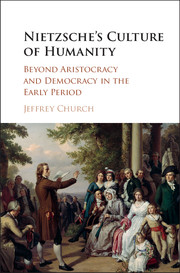Book contents
Introduction
Published online by Cambridge University Press: 05 October 2015
Summary
In a recent interview about his 2012 book La civilización del espectáculo, the Nobel Laureate Mario Vargas Llosa despaired over the transformation the concept of “culture” underwent during his lifetime. For Llosa, culture once expressed what was common and “fundamental for humanity”; it unified society and repudiated sectarian strife and inhuman oppression. Culture once distinguished the “mundane and the execrable” from the “excellent,” providing a standard of and motivation for the best in human life. However, Llosa observes, culture gradually lost its focus on the right, the good, and the beautiful, replaced by spectacle, “entertainment and distraction.” This new culture leaves individuals mired in materialism and confused about a spiritual life, their sensibility hardened, untutored by great poetry and art, the conflicts among groups prone to violence without a common culture to humanize adversaries. In his eloquent defense of “high culture” over “mass” or “low culture,” Llosa revisits arguments developed by a long tradition of cultural critics including Matthew Arnold (1993), T. S. Eliot (1948), Ortega y Gasset (1985), Roger Scruton (2007), and many others.
Despite the eloquence of these critics, they have found little success. One of the main obstacles to culture is that many critics understand it to be opposed to the central values of liberal democracy, equality and liberty. For instance, some critics see “high culture” as an elitist project disdainful of the equality of humanity, or even more cynically an ideology to preserve the power of an elite, white, male clique. “High culture,” on this view, is an essentially conservative program, whose “canon” of “Great Books” excludes rival voices to the establishment, voices who have suffered in the name of creating and promoting this organization of power. At the same time, liberal critics regard “high culture” as a threat to liberty. Culture is a form of paternalism, since it tells individuals how we ought to live our lives. It tells us that our lives will be enriched and our social and political relations improved by embracing a high culture that we have no interest in.
The central problem with high culture, then, is that its defenders have not been able to reconcile it with the modern goods of freedom and equality. This book aims to overcome this problem.
- Type
- Chapter
- Information
- Nietzsche's Culture of HumanityBeyond Aristocracy and Democracy in the Early Period, pp. 1 - 10Publisher: Cambridge University PressPrint publication year: 2015



